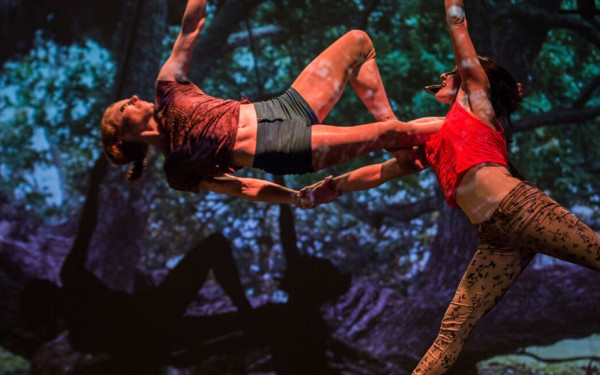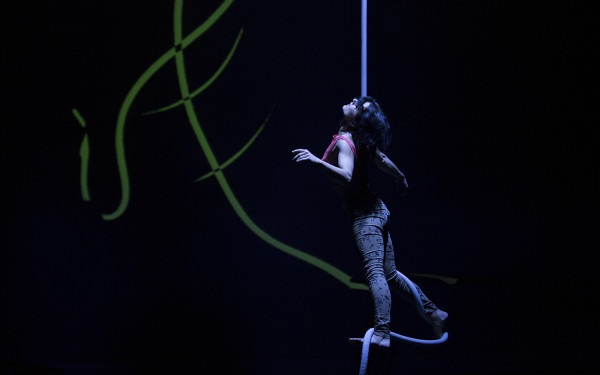Sisters in Motion: A Movement Building Bridges Over Difference Through Performance and Poetry
Annual Show Returns for it’s Fourth Year, Creating Community United Through Commonality, Not Difference
Fluffy white clouds floated softly across crystal blue skies. Quiet reverence filled the air as people made their way to the Virage campus MIL at l’Université de Montréal for the fourth edition of Sisters in Motion.
SiM is a fundraising event that mixes music and poetry to promote awareness about the realities of racial minorities. As for any event addressing these often taboo topics, emotions were bound to spill out in unpredictable ways.
But the aura created by organizers Malek Yalaoui and Dona la Luna warded off all negativity.
“May we have the strength and courage to commit to each other, to see the blessings through the mess, to see the gifts we have been given, and to give back,” said Yalaoui as she greeted the audience.
Herbalists circulated about the garden performing as “Healers,” ready to impart their knowledge of herbs, salves, balms and potions to anyone in need of soul-soothing. This space was for anyone who needed calm or help with grounding themselves and their anxiety.
Even the bees graced us with their numbers, almost as many of them in attendance as their human counterparts. A feast was being served for lunch to attendees, courtesy of Midnight Kitchen: a non-profit, volunteer and worker based food collective of McGill University, in collaboration with SSMU. The food collective’s mandate is to provide free or affordable food to as many people as possible.
“I always feel a sense of nurture when I come here,” explained Mimann Gabriel, a first year student studying Fine Arts at Concordia, who was attending the SiM event for the third time.
Gabriel said she was moved by the beautiful setting of the lush garden grown in an industrial area of Outremont, describing the ambiance as “good and powerful.” As a returning guest, she was still just as baffled as me with the crowd’s general vibe. It appeared everyone knew each other in some way or another. When that wasn’t the case, it took no time at all to meet some of the most agreeable people you could ever wish to encounter. I remember trying to fade into the background upon arriving, but there was no such thing as an outsider at this event.
“There’s this amazing feeling of inclusiveness, that I have never witnessed anywhere else,” described Soheil Zénon, who also had also attended the event for the past few years.
I felt the same way⎼ people were eager to meet and get to know each other. I suddenly felt my own reserves and usual concern diminish into something unimportant in their company. Perhaps it was because even in all our differences, we remained undeniably similar, linked through shared experiences of being racial minorities in a dominantly white society.
The show was unlike any diversity awareness event I had ever attended. Since the event meant to emphasize ASL learning and the inclusion of the deaf community, as there were translators there, we were all encouraged to clap as they do, which is by lifting our arms up in the air and waving our hands towards the sky. It looked as if the crowd was saluting both the performers and the universe for the incredible beauty that was being displayed for them. It was a delightful spectacle.
“The music echoed everywhere,” Mimann said, recalling the group of Indigenous artists who joined forces to deliver a stunningly moving performance . “It was so great, I felt that it was better than attending a show at the Bell center.” Each one of them represented their nations with dignified pride, Nahka Bers standing as a Dene/Quebecois, Moe Clark a nomadic Metis, and Dayna Danger advocating with her fellow Metis as well as for Anishinaabe/Saulteaux people, her kin.
The trio had been the opening act, beginning their set with a truly powerful piece called the “White Bird song”. The chant, explained performer Dyana Danger, who had learned it from her mother, was meant to help us all remember that we all belong here and are cherished by the world we inhabit.
Their performance was enthralling for the audience as much as for the musicians, who were all spellbound by the rhythm of the drums and the firm softness of their voices.
“Man, I think we’re resonating in the mountains and back,” exclaimed Moe Clark, after finishing this first song. “I can just feel the land reverberating with us!”
The performance emanated harmony that permeated the crowd. Their music acted as a conveyor for their existence and culture, the history of the loss of their nations’ lands and their hope for movement toward a decolonialization of Canadian culture. All of their actions spoke in a personal way about intimate aspects of their lives, navigating spectators through a whole range of emotions; bringing them to tears, laughter or inciting them to dance.
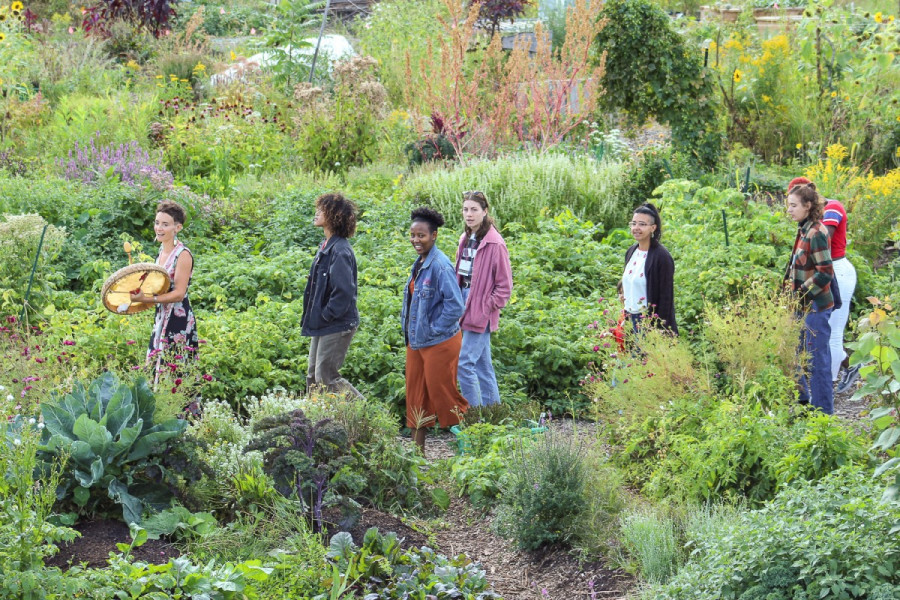
The promotion of diversity can sometimes turn into aggressive reproaches thrown from a victim’s perspective. In this instance, I only saw people from different backgrounds willing to share their feelings, struggles, insecurities and emotional wounds with complete honesty on stage, only to be met with acceptance and affection.
“It’s really great to be in this wonderful place, full of people who appreciate the energy we’re bringing into the world,” noted Deanna Smith, before sharing some prose.
There was no segregation between minorities, everyone was mingling together without any reservations⎼they seemed to be united through both their pain and their compassion for one another.
“My grandmother’s grandmother’s grandmother was probably a slave,” Deanna’s poem began. “There are days that I wake up not thinking about that, but today is not one of those days. Today I fell ill at ease in this brown skin so often the sole cause of suffering to people I would recognize as family without ever having met them.”
Even though artists all spoke of their experiences in familiar terms, the feelings triggered by their stories were universally relatable. This is maybe the quality which makes SiM stand out from any other movement to promote diversity, because it’s not so much about educating people as it about bringing them closer.
“It’s really easy to write beautiful statements, but we have to actually get up and talk to each other,” explained Malek.
“It made [diversity] seem normal,” said Kat Louis, who had performed a moving poem about immigration, inter-generational trauma between immigrant mothers and their daughters, as well as issues with her father.
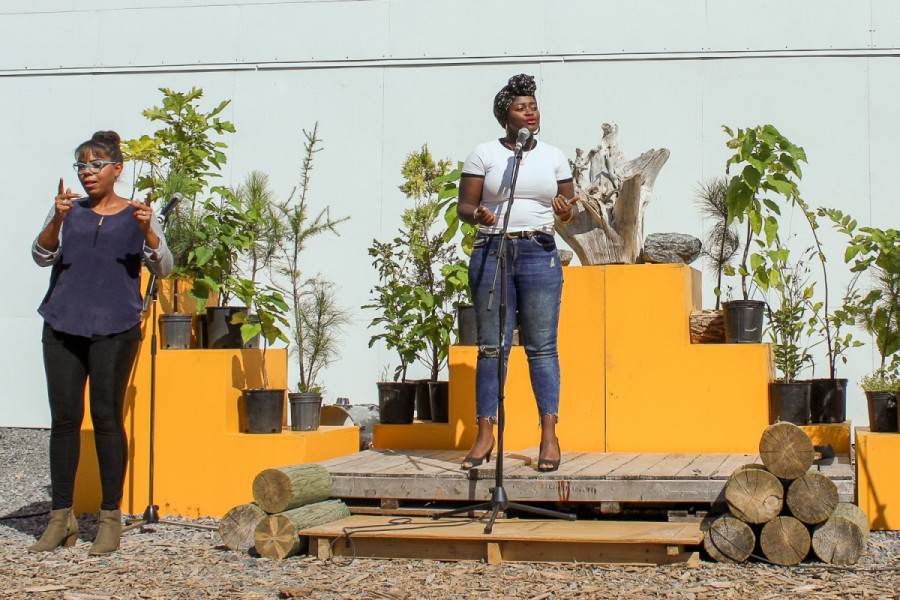
“It didn’t seem like it was specifically an ASL event, or specifically a people of color event. It was like a normal event, and everybody should be able to gain access and be able to speak here, or at any event,” she continued.
Every word of her poem was both devastating and uplifting. It related struggle, but more importantly strength, courage, hope and light.
“Remember, just because you were given abandonment as a Christmas gift, it doesn’t mean it’s a gift worth unwrapping,” Kat said, sharing her mother’s advice regarding her father, and the angry resentment this poet felt for him.
“Remember to always forgive, not for the culprit but for the survivor,” she said. “You are a warrior, so let go of your pain, so you too can claim your queendom of sunshine and rain.”
Rejection, and the hardship that it breeds can come from all places, and is not an experience exclusive to minorities. The hardest thing is to accept that you can’t blame people for not accepting you. It’s true that as a person of mixed ethnicity, I myself feel that this attribute often serves to amplify the ways in which I’m singled-out in a variety of social situations.
Trying to find someone to blame for this is a terribly exhausting and painful endeavor which never ends, because it is simply impossible to punish all the people who wronged you. The process would also hurt you more than it would hurt them. That’s probably the reason why Deanna’s words resonated with me. Described as a woman who loves words, she explained, “I do my best to make sure that the ones that I share are like seeds, and my prayer is that they grow into something beautiful for the people who hear them.”
Finding myself among the community assembled around SiM, I encountered a group who shared this wonderful wish for harmony, which was both a new and mystifying occurrence for me. No matter how incredible this sensation might have been, the reality remains undeniable: when the hosts closed the show by asking the audience to gather themselves for a moment before naming aloud the thing they were most grateful for in that moment, “Love” is what we all heard each other say.

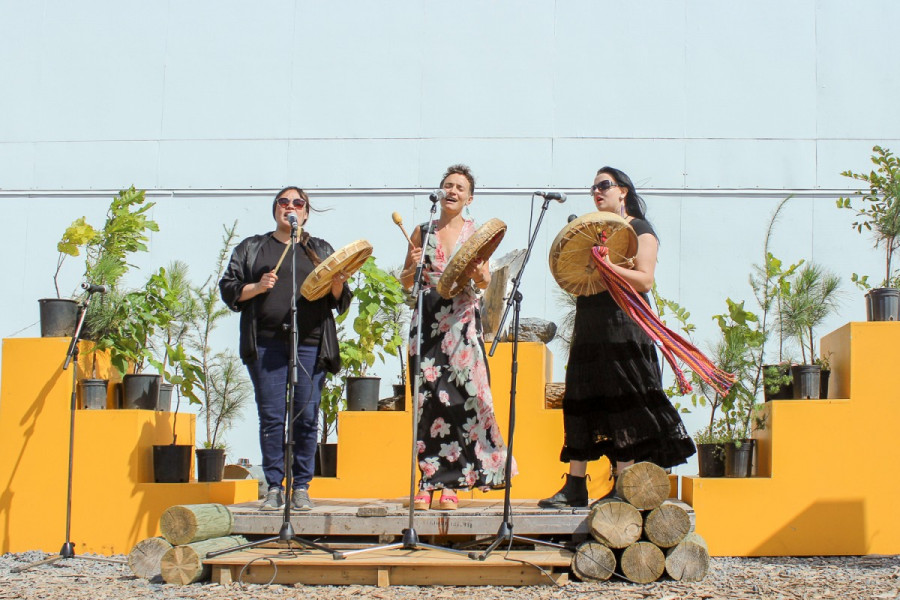

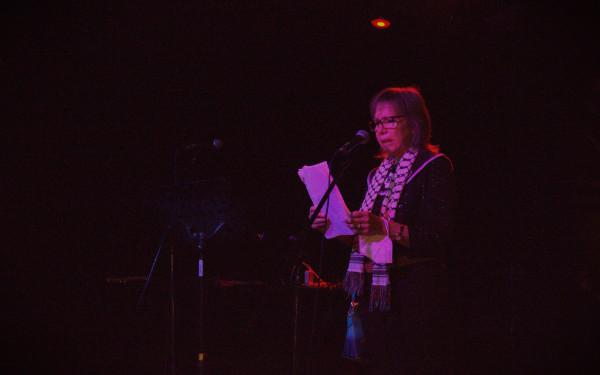
8_600_375_90_s_c1.jpg)
